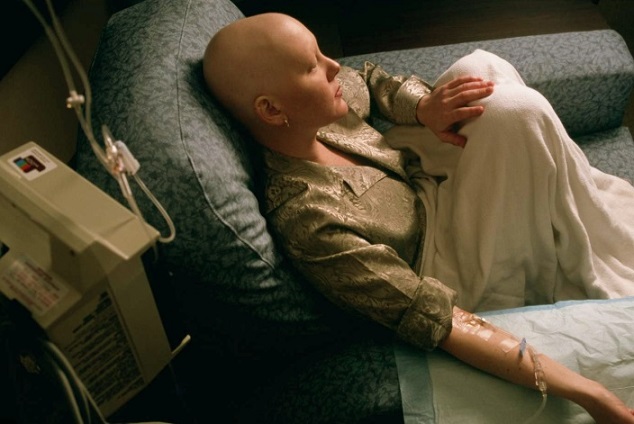Nikhil Prasad Fact checked by:Thailand Medical News Team May 31, 2025 8 months, 3 weeks, 2 days, 16 hours, 24 minutes ago
Thailand Medical News: Chinese Scientists Uncover Key Genes Driving the Overlap Between Mental Illness and Tumor Growth
A groundbreaking new study by researchers from the Institute of Basic Research in Clinical Medicine, part of the China Academy of Chinese Medical Sciences in Beijing, has shed new light on the mysterious biological connection between depression and breast cancer. Although depression is often seen as a psychological condition and breast cancer as a purely physical one, scientists have long noticed that the two often occur together. Now, this
Thailand Medical News report uncovers that a specific immune-related mechanism may be responsible for this dangerous overlap.
 How Immune Dysfunction Links Depression and Breast Cancer
How Immune Dysfunction Links Depression and Breast Cancer
By analyzing large public datasets, including the Gene Expression Omnibus (GEO) and The Cancer Genome Atlas (TCGA), the Chinese researchers identified 93 genes that are active in both conditions. They then narrowed down to three key genes—BHLHE41, EpCAM, and GSTM2—that appear to play a central role in both depression and breast cancer through their influence on the immune system and inflammation pathways.
A Dual Threat from the Immune System
One of the most surprising findings of the study was how immune cells behave very differently in people suffering from depression versus those with breast cancer. In depressed individuals, immune cells like B-cells, CD8+ T-cells, and Th2 cells were found to be reduced, suggesting a weakened immune defense. On the other hand, in breast cancer patients, these same cells were increased, potentially helping the tumor hide and grow.
The researchers then looked deeper into the three shared genes. BHLHE41 is a gene involved in controlling sleep rhythms and inflammation. When this gene is disrupted, it can cause both mental health issues and allow tumors to grow more easily. EpCAM, normally known for its role in breast cancer, might also influence inflammation and the breakdown of the blood–brain barrier—a key feature in depression. GSTM2, a gene that helps protect cells from stress, appears to be involved in regulating both immune cells and harmful chemicals that damage DNA and brain tissue.
Advanced Gene Testing Methods Confirm the Link
To make sure these genes were truly important, the team used advanced machine learning methods like LASSO regression and ROC curve analysis, showing that these genes had high diagnostic power in identifying both depression and breast cancer. All three genes showed area-under-the-curve (AUC) values above 0.7, confirming their importance.
The researchers also used gene set enrichment analysis (GSEA) to determine what kinds of biological pathways these genes were involved in. BHLHE41 was strongly linked to immune pathways like B-cell immunity and cytokine production. EpCAM was found to affect immune signaling and tissue response to stress. GSTM2 was associated with cellular stress control, detoxification, and autoimmune reactions.
A Common Biological Root for
Two Deadly Conditions
This study provides powerful evidence that immune system dysfunction lies at the core of both depression and breast cancer. Chronic inflammation, triggered by genes like BHLHE41, EpCAM, and GSTM2, may both damage the brain and allow cancer cells to thrive. These genes seem to fuel a vicious cycle where psychological stress weakens the body’s defenses, allowing cancer to grow, while tumors further impair mental health.
Understanding these shared pathways could open new doors for treatment. For example, drugs that target immune inflammation might help ease depression and stop cancer growth at the same time. It also offers the possibility of early screening tools that use blood tests to check for these three gene markers—especially in people who are either chronically depressed or at high risk for breast cancer.
Conclusion
This landmark research is the first of its kind to show that depression and breast cancer may be driven by the same dysfunctional immune pathways, particularly those involving BHLHE41, EpCAM, and GSTM2. These genes do more than just overlap—they act as a molecular bridge linking mental and physical health. The research not only helps explain why so many people with breast cancer also suffer from depression, but also paves the way for future therapies that could treat both conditions together. This dual-target approach could improve quality of life, boost treatment outcomes, and ultimately save lives.
The study findings were published in the peer-reviewed International Journal of Molecular Sciences.
https://www.mdpi.com/1422-0067/26/11/5229
For the latest in Immunology, keep on logging to
Thailand Medical News.
Read Also:
https://www.thailandmedical.news/articles/immunology
https://www.thailandmedical.news/articles/cancer
https://www.thailandmedical.news/articles/mental-health
https://www.thailandmedical.news/pages/thailand_doctors_listings
https://www.thailandmedical.news/articles/hospital-news
